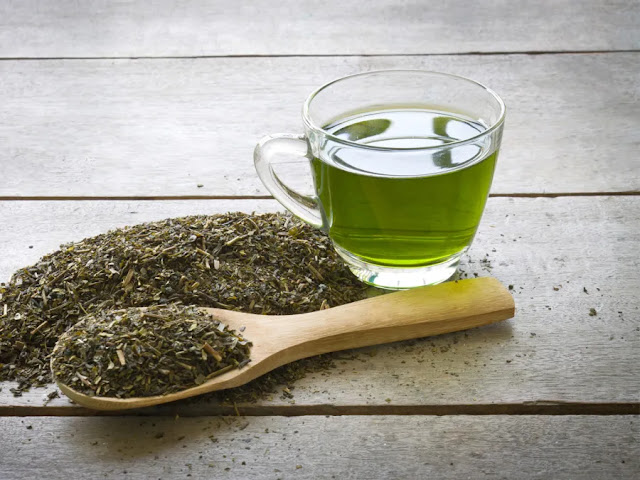Green tea is one of the most popular beverages globally, and its consumption has surged in recent years due to its numerous health benefits, particularly in aiding weight loss. Green tea is rich in flavonoids, including catechins, antioxidants, magnesium, and caffeine. These compounds play significant roles in the fat-burning process and metabolic rate enhancement. Catechins help break down excess fat in the body, while caffeine accelerates metabolism by increasing energy expenditure through fat burning.Best Time to Drink Green Tea for Weight LossNutritionist Mirna Al-Fattah emphasizes that for optimal weight loss results, the best times to drink green tea are either on an empty stomach in the morning or about one hour after eating. Here’s why:1. Drinking Green Tea on an Empty StomachGreen tea contains caffeine and catechins, both of which contribute to fat loss by boosting metabolism. Research has shown that drinking green tea in the morning before eating can significantly enhance fat-burning and assist in weight loss.
Boosts metabolism: Green tea’s antioxidants, particularly catechins, play a role in accelerating fat burning and increasing thermogenesis (the process of heat production in the body).
Rich in nutrients: Green tea is packed with vitamins like Vitamin C, B vitamins, folic acid, and minerals such as potassium, calcium, and copper, which contribute to boosting the body's metabolic rate. It also contains polyphenols, which have been found to prevent fat accumulation.
Other health benefits: Drinking green tea on an empty stomach can also contribute to lowering bad cholesterol levels, improving blood circulation, and boosting immunity. It is considered beneficial for those with Parkinson’s disease and Alzheimer’s, as it helps alleviate symptoms.
Caffeine content: The caffeine in green tea supports fat loss by increasing the body's energy expenditure. Research shows that 100 milligrams of caffeine can burn approximately 9 extra calories.
However, there are some caveats:
Iron absorption: Green tea reduces the absorption of iron from food, so it's important to wait at least one hour after eating before consuming green tea if you have concerns about iron levels.
Anemia: If you suffer from anemia, it's recommended to limit your green tea intake to no more than two cups a day, as excessive consumption can hinder iron absorption.
Blood sugar levels: For individuals with diabetes, the caffeine content in green tea can interfere with blood sugar regulation, so it’s advised to consume it in moderation.
2. Drinking Green Tea After Meals
It’s generally recommended to drink green tea at least 30-45 minutes after a meal. This timing allows the body to absorb nutrients from the food properly and minimizes the impact green tea may have on nutrient absorption, particularly iron and copper.
3. Before Exercise
For those looking to enhance fat loss and optimize metabolism, drinking green tea before exercise (on an empty stomach) can be highly effective. Studies have shown that it boosts fat oxidation during physical activity, which may lead to more calories burned and greater fat loss.
4. Avoiding Green Tea at Night
Because of its caffeine content, green tea is best avoided in the evening or before bed, as it can disrupt sleep and cause insomnia. The stimulant properties of caffeine can interfere with relaxation and restful sleep.
Health Benefits of Green Tea
In addition to weight loss, green tea provides a wide range of health benefits:
1. Cancer Prevention
Green tea is loaded with antioxidants that have been shown to kill cancer cells and prevent their growth. Its polyphenols help protect against the development of several types of cancer, including breast, lung, and prostate cancer.
2. Heart Health
Regular consumption of green tea can help lower bad cholesterol (LDL) levels while raising the levels of good cholesterol (HDL), thereby supporting cardiovascular health. It also helps regulate blood pressure, which reduces the risk of heart disease and stroke.
3. Improved Brain Function
Green tea contains the amino acid L-theanine, which works synergistically with caffeine to improve brain function, increase focus, and enhance memory. It may also reduce the risk of neurodegenerative diseases like Alzheimer’s and Parkinson’s.
4. Immune System Boost
The antioxidants in green tea help strengthen the immune system by fighting off harmful bacteria and viruses. Green tea’s antibacterial and antiviral properties contribute to maintaining good health and preventing illnesses.
5. Mental Health Benefits
Green tea’s L-theanine content also has a calming effect, which can reduce stress and anxiety, improving mood and mental clarity. This makes it a good option for improving overall mental well-being.
6. Improves Oral Health
Green tea has natural antibacterial properties that help fight off bacteria in the mouth. It has been shown to reduce bad breath, prevent tooth decay, and reduce the risk of gum disease.
7. Digestive Health
Green tea helps improve digestion and can aid in preventing digestive issues like bloating and indigestion. It also has hydrating properties, ensuring the body stays well-hydrated and reducing the risk of dehydration.
8. Fights Aging
Due to its rich content of antioxidants, green tea helps slow down the signs of aging by protecting the skin from free radical damage and promoting cell regeneration. It also supports joint health, which can reduce discomfort associated with conditions like arthritis.
Conclusion
Green tea is a powerhouse of nutrients and compounds that promote weight loss and contribute to overall health and wellness. By incorporating green tea into your daily routine, particularly at the right times, you can optimize its fat-burning effects and enjoy numerous other health benefits, including improved heart health, enhanced brain function, and better immune system health.
To get the most out of green tea, consider drinking it on an empty stomach in the morning, before exercise, or after meals—while avoiding excessive intake to protect against iron deficiency and other potential side effects. Enjoy your cup of green tea and embrace its many advantages for a healthier lifestyle.


Post a Comment